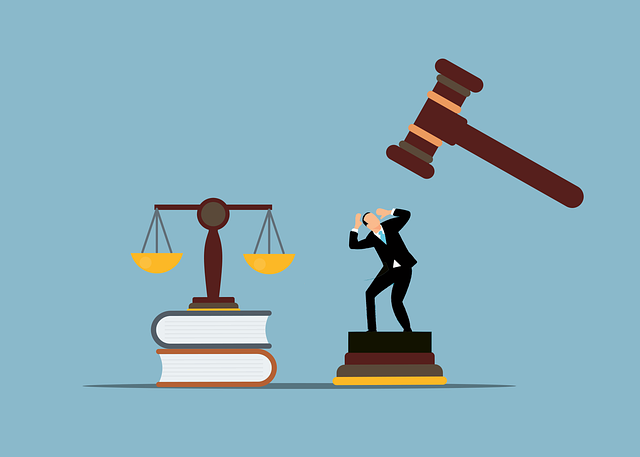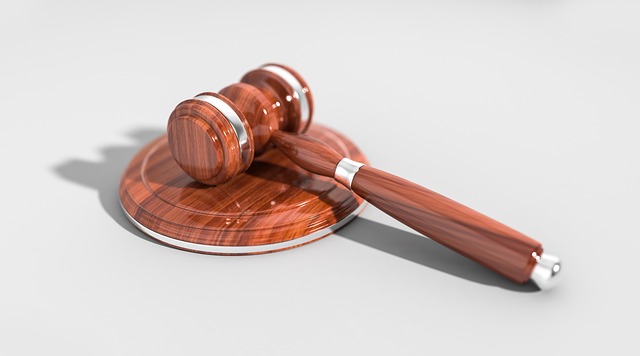Corporate crime investigations in real estate involve meticulous document scrutiny, financial analysis, and witness testimonies through collaborative law enforcement and regulatory efforts. The Real Estate Litigation Process Explained uncovers fraud, mismanagement, and illicit activities by examining contracts, records, and legal documents, ensuring fairness and accountability. Skilled investigators navigate evidence collection, digitizing data, uncovering assets, and reconstructing digital trails to strengthen cases, especially in high-profile scandals with significant stakes. This process is vital for both prosecutors and defenders to understand common defense strategies, protect client rights, and preserve business operations integrity.
In the complex corporate landscape, understanding investigations into corporate crime is paramount. This article delves into the intricate world of corporate crime examinations, with a specific focus on real estate litigation. We explore the legal framework governing this process and provide valuable insights into evidence collection strategies.
From fraud detection to navigating the complexities of real estate transactions, we offer practical guidance. Learn how to uncover fraudulent activities within the industry through effective investigative techniques. The Real Estate Litigation Process Explained will equip readers with knowledge to recognize and address potential corporate misconduct.
- Understanding Corporate Crime Investigations
- Legal Framework for Real Estate Litigation
- Evidence Collection in Corporate Scandals
- Strategies for Uncovering Fraud in Real Estate
Understanding Corporate Crime Investigations

Corporate Crime Investigations delve into complex cases where businesses or their representatives engage in illegal activities. This can range from financial fraud and embezzlement to environmental violations and antitrust violations. Understanding these investigations is crucial for both victims seeking justice and companies aiming to prevent such misconduct. The Real Estate Litigation Process Explained often involves a meticulous review of documents, financial records, and witness testimonies. Law enforcement agencies and regulatory bodies work together to achieve extraordinary results by holding perpetrators accountable.
A successful white collar defense strategy requires a deep understanding of the law and a proven track record of handling high-stakes cases. In these unprecedented times, companies must be vigilant in maintaining compliance and ethical standards to avoid becoming entangled in investigations. By recognizing potential vulnerabilities and implementing robust internal controls, organizations can significantly reduce their risk exposure.
Legal Framework for Real Estate Litigation

The Real Estate Litigation Process Explained is a complex yet critical aspect of corporate crime investigations. It involves a series of legal procedures designed to uncover fraud, mismanagement, or other illicit activities within the real estate sector. This process is governed by a robust legal framework that includes state and federal laws, each with its own set of rules and regulations. The framework ensures fairness, transparency, and accountability in resolving disputes related to property transactions, development projects, and investment schemes.
Understanding the general criminal defense strategies employed in real estate litigation is essential for both prosecutors and defenders. Each case is unique, demanding a thorough examination of contracts, financial records, and legal documents. For his clients, effective representation involves navigating these complexities, ensuring their rights are protected throughout the process. This meticulous approach to Real Estate Litigation Process Explained ultimately contributes to maintaining the integrity of the respective business operations and the broader real estate market.
Evidence Collection in Corporate Scandals

In the high-stakes world of corporate crime investigations, evidence collection is a meticulous process that can make or break a case. When corporate scandals emerge, from financial misdeeds to fraud, every piece of information matters. Investigators must navigate a complex landscape, ensuring they follow the right procedures to avoid indictment and build a robust case. This involves gathering digital evidence, documents, and witness statements, all while maintaining the integrity of the data to stand up in court.
The Real Estate Litigation Process Explained plays a significant role here. In these intricate cases, every detail can be crucial. Skilled investigators employ specialized techniques to uncover hidden assets, trace financial transactions, and reconstruct digital footprints left by wrongdoers. By achieving extraordinary results through thorough evidence collection, they not only strengthen the prosecution’s case but also ensure that justice is served, especially in high-profile corporate scandals where reputational damage and financial implications are immense.
Strategies for Uncovering Fraud in Real Estate

Fraud in real estate can be a complex web, but robust investigations are essential to uncover discrepancies. The initial steps often involve a meticulous review of financial records, examining transactions, and identifying anomalies. By comparing the actual property values with market trends and similar properties, investigators can pinpoint suspicious activities. This process is crucial as it forms the backbone of the Real Estate Litigation Process Explained, where evidence is gathered and presented to establish wrongdoing.
Additionally, a comprehensive analysis of the respective business dealings, including partnerships and investments, is vital. Tracing money flows through various entities, especially those with philanthropic or political affiliations, can reveal hidden motives or suspicious funding patterns. These strategies, when employed by skilled investigators, offer a chance to expose fraudulent schemes, ensuring justice within the industry and safeguarding the general criminal defense process.
Corporate crime investigations, especially in the realm of real estate litigation, require a meticulous approach. By understanding the legal framework and employing effective strategies, such as evidence collection techniques tailored for scandals involving fraudulent activities in real estate, investigators can navigate this complex landscape. The Real Estate Litigation Process Explained provides valuable insights into these matters, highlighting key considerations for uncovering truth and ensuring justice in corporate investigations.






